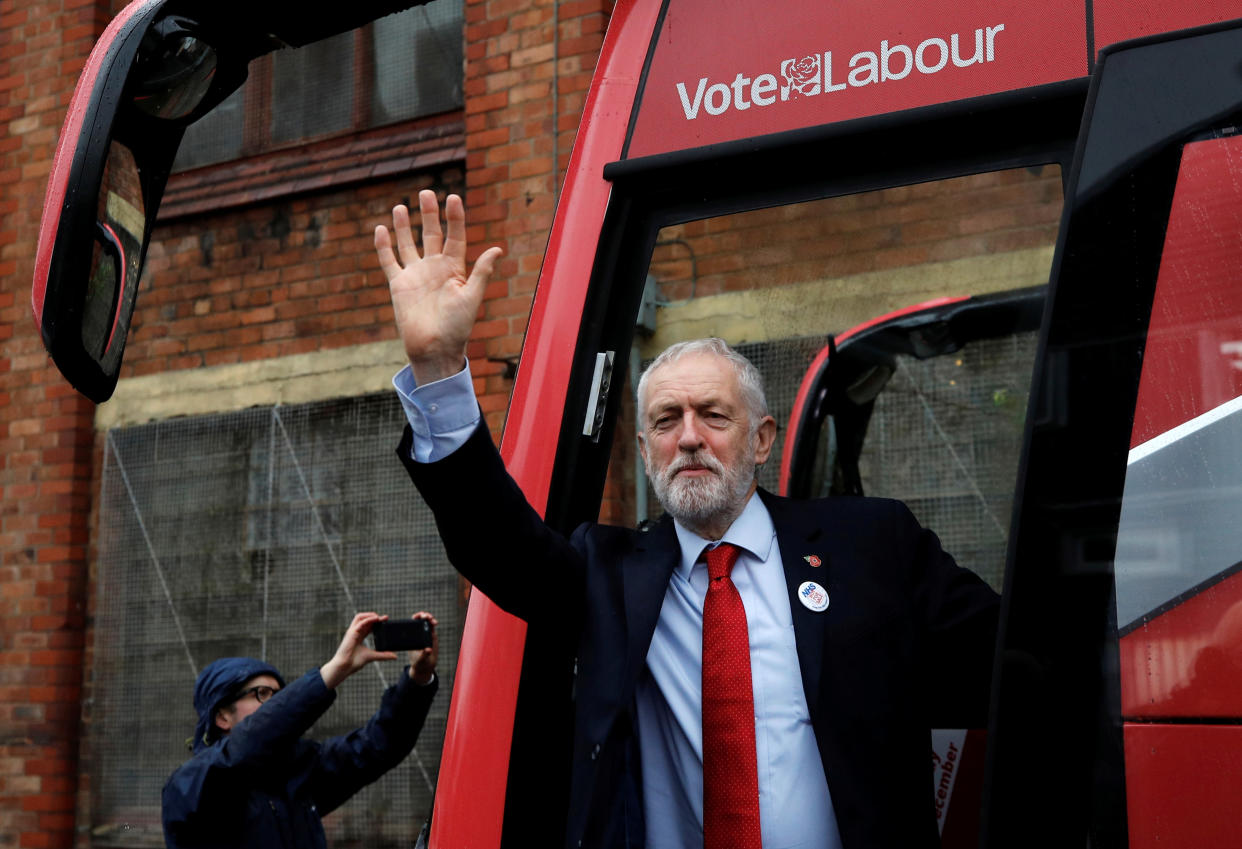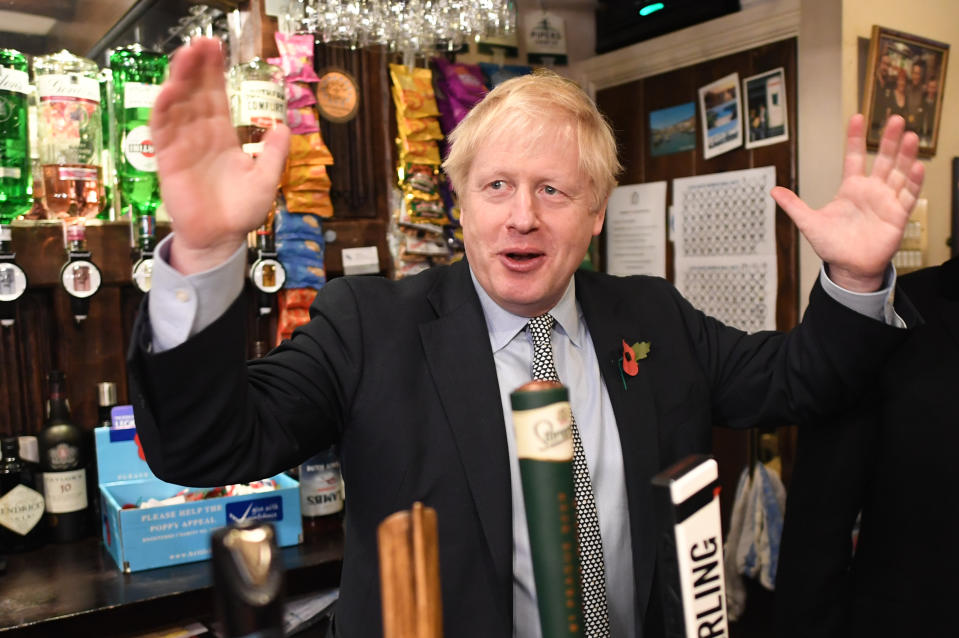Labour losing ex-industrial and university towns to Conservatives ahead of general election, says poll

The Labour Party is losing its grip on ex-industrial and university towns in the run-up to the general election, a poll says.
The Centre For Towns think tank and YouGov survey shows that a number of towns in the north of England, earmarked as a key battleground in the December 12 election, are turning from red to blue.
The poll indicated support for Jeremy Corbyn’s party had crumbled in election target towns, with many voters deciding to ditch Labour and back Boris Johnson.
The prime minister will be heartened by the results from the so-called “heartland”, which show Tory domination of crucial election battlegrounds.

In the 2017 general election, Labour won 50% of the vote in ex-industrial towns, said YouGov, compared to the Conservatives on 37%, Ukip on 5% and the Liberal Democrats on 3%.
But the Centre For Towns survey showed that, based on current voting intention, the Tories now lead the way in ex-industrial towns, with 37%, ahead of Labour on 27%, the Brexit Party on 16% and the Liberal Democrats on 14%.
Read more
Britain remembers as Royal Family leads nation on Remembrance Sunday
Shop plagued by thefts stacks shelves with empty jars to thwart shoplifters
Historian pulled from St Petersburg river with backpack containing woman's severed arms
Centre For Towns identified ex-industrial towns as key election northern target areas such as Barnsley, Bolton, Bury, Burnley, Crewe, Doncaster, Hartlepool, Heywood, Mansfield, Redcar and Rotherham, as well as towns in the Midlands and across the south Wales valleys.
But the poll also showed Labour is shipping support in university towns such as Canterbury, Cambridge, Chester, Huddersfield, Lancaster, Loughborough, Poole and Preston.
In 2017, Labour led the way in university towns with 46% of the vote, ahead of the Conservatives with 40%, YouGov said.
However, current voter intention shows a reversal of fortune, with the Tories in the lead on 32% in those areas, with Labour dropping back to 27%.
Centre For Towns’ Will Jennings, professor of political science and public policy at the University of Southampton, said: “Our analysis shows how Labour are trailing the Conservatives outside the major cities.
“In 2017, we saw Labour doing worse in smaller towns, especially former industrial and coastal towns, but better in cities.
Centre For Towns - POLLING: How do our towns intend to vote?https://t.co/f5s5frOrmT
— Centre For Towns (@centrefortowns) November 11, 2019
“While the fieldwork for this was conducted before the campaign started it shows that the party has a mountain to climb to get close to its 2017 performance.
“The Conservatives have also seen their support decline from 2017, but by nothing near as much. A notable feature of the poll is how support for the parties has fragmented - and Labour is suffering most from this.
Centre For Towns’ Ian Warren said: “We have repeatedly emphasised how any political party hoping to win power in a general election must win dozens of marginal constituencies comprised exclusively of voters in towns.
“The upcoming general election is no different. With the Conservatives piling up large leads in rural communities and Labour performing best in our largest cities, the remaining vote in our towns becomes the decisive battleground.
“Perhaps remarkably, the Conservatives now hold five-point leads over Labour in both ex-industrial towns and university towns whilst extending their leads in the other place types.”
He added: “The Conservatives would be foolish to believe the leads they currently hold are secure, whilst Labour have some time to regain their position in our towns.”
Centre For Towns used data from 11,590 people surveyed for a YouGov poll between October 17 and 28.

 Yahoo News
Yahoo News 

